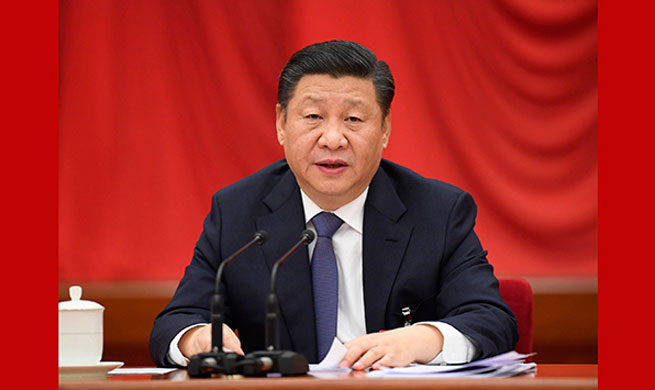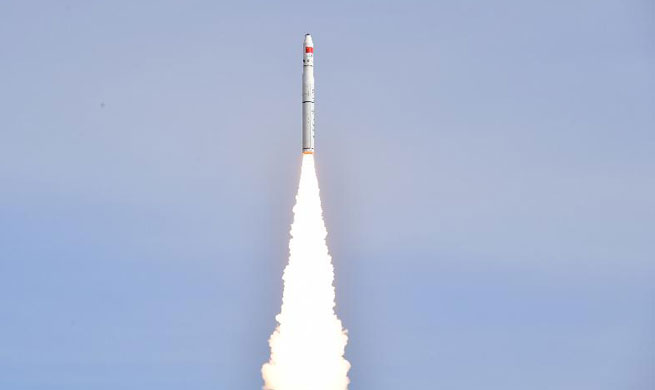UNITED NATIONS, Jan. 19 (Xinhua) -- UN Secretary-General Antonio Guterres Friday urged parties concerned to address the root causes of crisis in Central Asia and build peaceful societies resilient to terrorism and violent extremism.
Addressing the Security Council meeting of "Building regional partnership in Afghanistan and Central Asia as a model to link security and development," the UN chief said that "only by addressing the root causes of crisis, including inequality, exclusion and discrimination, will we build peaceful societies resilient to terrorism and violent extremism."
"Sustainable development is a fundamental end in itself, enabling people, communities and societies to flourish and fulfil their potential," he said, adding that "sustainable and inclusive development is also an important factor in preventing and ending conflict, and in sustaining peace."
The United Nations development system is engaged in supporting governments throughout the region to implement the 2030 Agenda for Sustainable Development and to invest in sustainable economic growth, including greater opportunities for young people, women and girls, he said.
"Education, vocational training and jobs must be an absolute priority in national and regional development cooperation," he added.
The Secretary-General said that the entire international community "has a stake in peace, stability and development" in Afghanistan, and the countries of Central Asia "have a particularly important role to play."
However, he noted that "countries in this region can never achieve their full potential alone. All are landlocked, and many developed over decades as economically interdependent parts of a larger whole," adding that "growth, increased employment opportunities and prosperity depend on accelerated economic cooperation and integration."
The UN chief said that the common geography and history of Central Asian countries and Afghanistan, and their strong cultural ties, "create enormous potential for mutually beneficial joint projects, trade and exchange."
"Opportunities for intra-regional trade are significant, and even modest improvements can result in substantial gains for all the people of the region," the UN chief said, noting that he is "heartened over recent signs of change for the better."
Guterres recalled his visit to Afghanistan, Kazakhstan, Kyrgyzstan, Tajikistan, Turkmenistan, and Uzbekistan last June, noting that he was "encouraged to see new bilateral and regional connections and better regional dynamics."
The Secretary-General said he was deeply impressed that "new efforts are taking place to better manage the water resources that are fundamental to economic development in this region."
"These resources are coming under unprecedented strain. As I witnessed during my visit, almost 30 percent of Tajikistan's spectacular glaciers have melted in the last 10 years alone. The Aral Sea stands as a terrible warning of the consequences of mismanagement. We must use these ecological disasters to spur greater cooperation and action," he said.
The UN chief noted that Central Asian governments have recently begun to intensify cooperation on water resources through bilateral water commissions and agreements. "These developments hold important lessons for Afghanistan, where water-dependent farming and agriculture make up nearly half of the economy."
Guterres said he was also encouraged to see positive developments in energy cooperation, "which is fundamental to promote development and security."
"Several cross-border initiatives are now being planned or are under way, including the Central Asia-South Asia power project, a natural gas pipeline from Turkmenistan through Afghanistan to Pakistan and India, and a new power transmission line from Uzbekistan to Afghanistan," he said.
The UN chief pledged that the United Nations "family stands ready to support these initiatives and others that can bring greater investment and prosperity to this region."
Guterres noted that the personal contacts brought by trade "can also help dismantle informal barriers and increase trust. We should build on civil society initiatives in this area to bring communities together across borders, including women's groups that mediate local tensions and develop joint infrastructure projects."

















